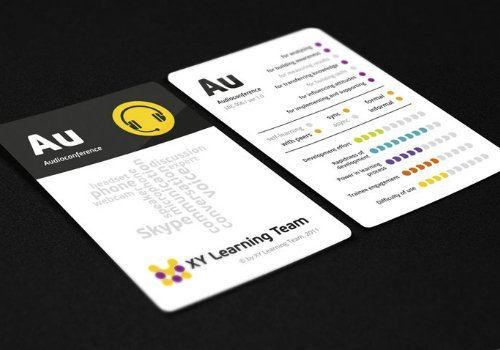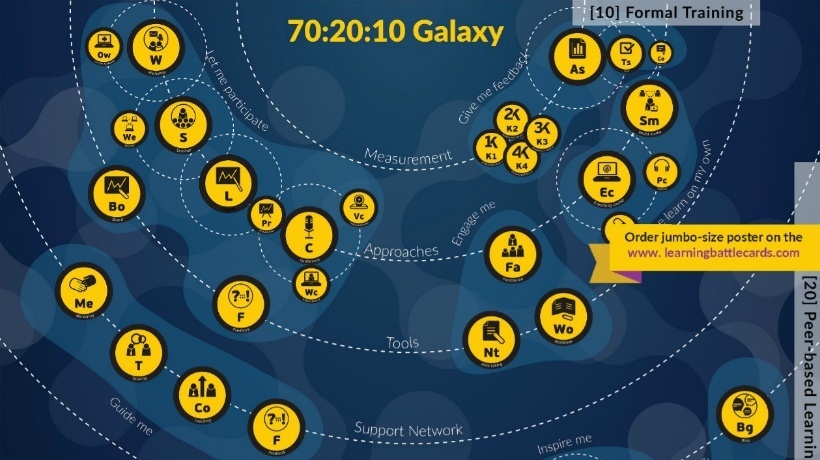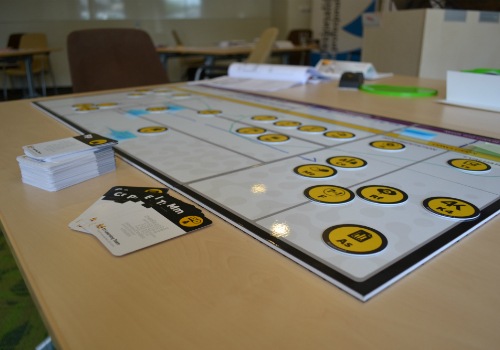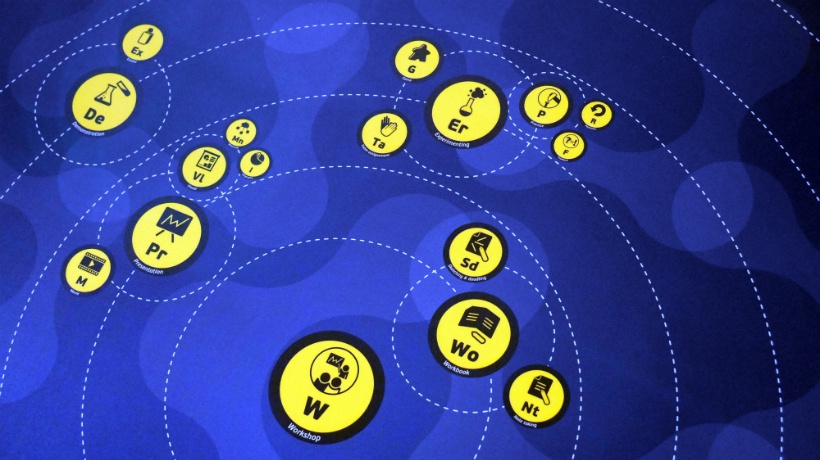Learning Battle Cards Inspirations
Most of us probably have a plan to work on our own learning process: we read a lot, watch inspirational videos, attend conferences, talk to peers from our industry, etc. But, following the learning methods everyone uses may not be enough. We are professionals at designing someone else’s learning process, let us implement some subtle and powerful activities into our own self-development.
When it comes to inspirations for a learning process, I always reach for Learning Battle Cards. I try to open my mind and catch new ideas while reviewing the cards. Last year I found some non-obvious ideas which, in my opinion, are worth implementing, especially if your knowledge and ideas are the essence of your job.
1. Benchmarking
The first card is Benchmarking. The idea behind benchmarking is something like:
- Think about what is important in learning and what you would like to master.
- Think about which industry and community (this thing is crucial).
- Try to find out how they are dealing with it to get the best results. Find their approaches, methods, and tools.
- Think about how you can use them in your situation (in our case L&D).
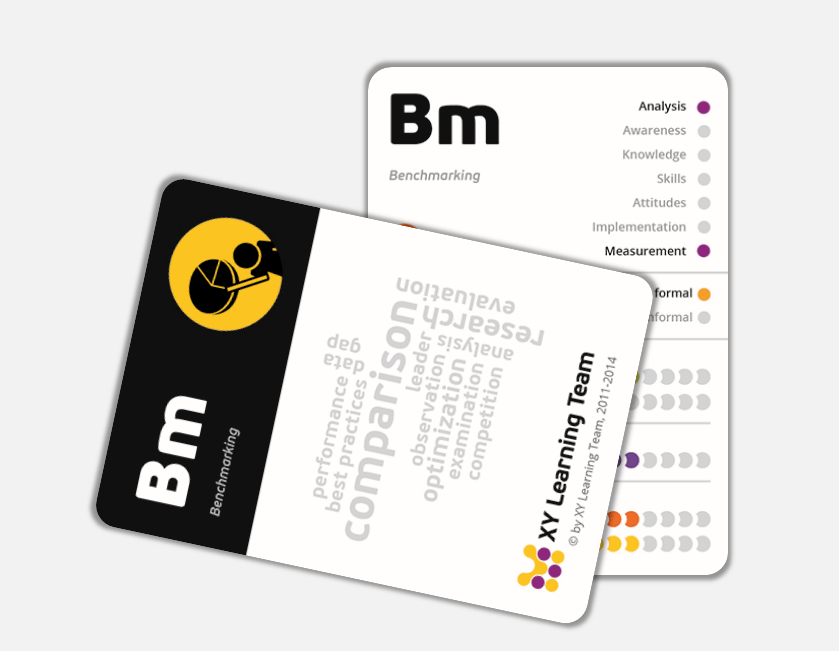
Does it work? Like a charm.
This year I wanted to find the best methods of engagement, which is, in my opinion, a crucial factor for an effective learning process. For whom is engagement crucial and who can do it better than educators? If you have children, you have no doubts that video games can engage people for many hours, making some of them forget about sleeping, eating, and the “real” world.
Last year I talked with people from the gamedev industry, I attended meetings, watched their presentations, listened to lectures, read their books, and even supported one author in the pre-publishing phase while he was writing about gamification. I found some really useful tools, like Octalysis by Yu-kai Chou, that can be used to work with different engagement factors. After talking with my son about what works in games, I understood that there are some simple things we can do to make our learning product more attractive, like giving people some control, maybe kind of an open world that is better at dealing with learners' mistakes.
I also wanted to understand how to learn to communicate the value of the learning process, because I believe that the learning starts as soon as the learner finds the value and makes a decision to start learning.
Who can do it?
I attended meetings for startups and found that they prepare 3-5 minute speeches to convince investors to invest millions in their idea. They are masters at communicating value. I was glad to learn their methods like the tasks/pains/gains analysis, for example. If you want to make significant progress in something, then benchmarking could be the best answer. Understand what is important and learn from those who have mastered it. Understand their methods and tools, and bring them to your industry.
2. Reflection
The second card which inspired me to improve my learning is Reflection.
Reflection is an active and conscious thought process that penetrates deeply into the essence of a given matter and subjects it to analysis. Reflection is subjective by nature, strongly referring to its own experiences, feelings, and desires.
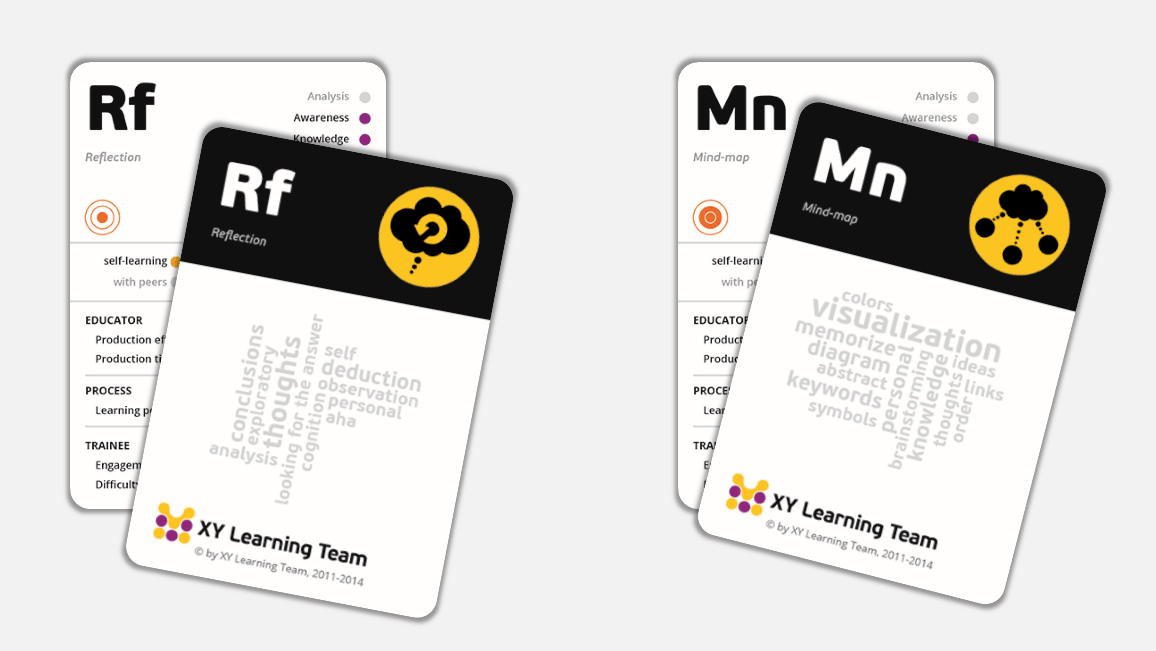
I am a mathematician, so I tend to model the reality I see. I try to understand the phenomena I observe, go into the details, understand the mechanics and come up with the models of learners' engagement, build value awareness, etc. But there are other ways of thinking and reflecting. Some people work with mind maps, some try to find good metaphors for what they have in mind. The problem is that we receive new knowledge and information at a pace and in such a large amount that it is hard to maintain.
Reflection is a necessity and, in my opinion, it is worth implementing to describe your theory, model, or whatever is the result of your reflection. The more you communicate something, the more clear, consistent, and understandable it becomes. Your model becomes as solid as a rock. I worked a lot this year on attracting people and engaging in learning. To make communication easier, my peers and I named it the Inbound Learning model. In time, the model became quite a solid approach, containing thoughts, methods, and tools linked with the same idea.
Make your reflection work and give results. Make your thinking clear, consistent, and understandable. Even if you do not end up writing a bestselling book, you will at least have your individual, great book in your mind to help you do things better.
3. Content Curation
My personal 2020 plan is to publish a lot. The idea came after I tried to explain the meaning of the content curation card to someone. It was one of those people who was not aware that she does content curation almost every day.
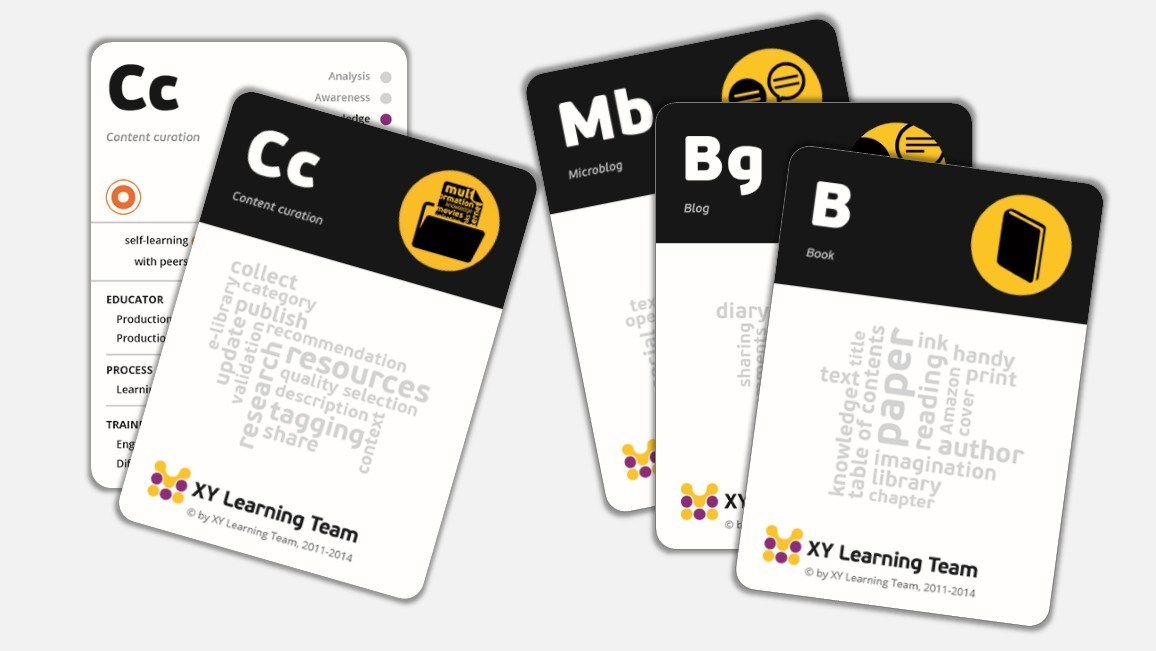
Content curation is defined as a set of constant or periodically repeated actions conducted by a teacher to authenticate widely available content. As a part of those actions, the teacher must obtain the resources (which is an important factor for their development), section, describe, tag, and categorize them. The teacher can recommend the content to their trainees or scholars. They can also direct them to some inspirational websites, like Pinterest or Scoop. There are many possible ways to share them, for example by adding them to the intranet or emailing them.
The main idea is that learners can gain really valuable resources because someone is selecting them to fit the learning process. But a side effect of this process is that the content curator is learning a lot through deep reflection and adapting the content for others.
Noticing this side effect was like an epiphany for me. Eureka. I am a heavy learner, who often has problems with the retention of new things. But content curation, writing articles, posts and shares force one to work on this content: analyze, find the context, maybe rephrase, synthesize. Even if I was the only reader of my blog, it is worth considering because the preparation of content, selecting what is valuable, and putting it into the right context makes me better at learning it. It is like working on your own knowledge base. If you are happy to have readers and some feedback, it is even better—free peers to support you.
There is also a side effect—you may become famous after some time.
I am wondering, what are your experiences with Benchmarking, Reflection and Content Curation as self-learning methods? Have you found any value in them?


